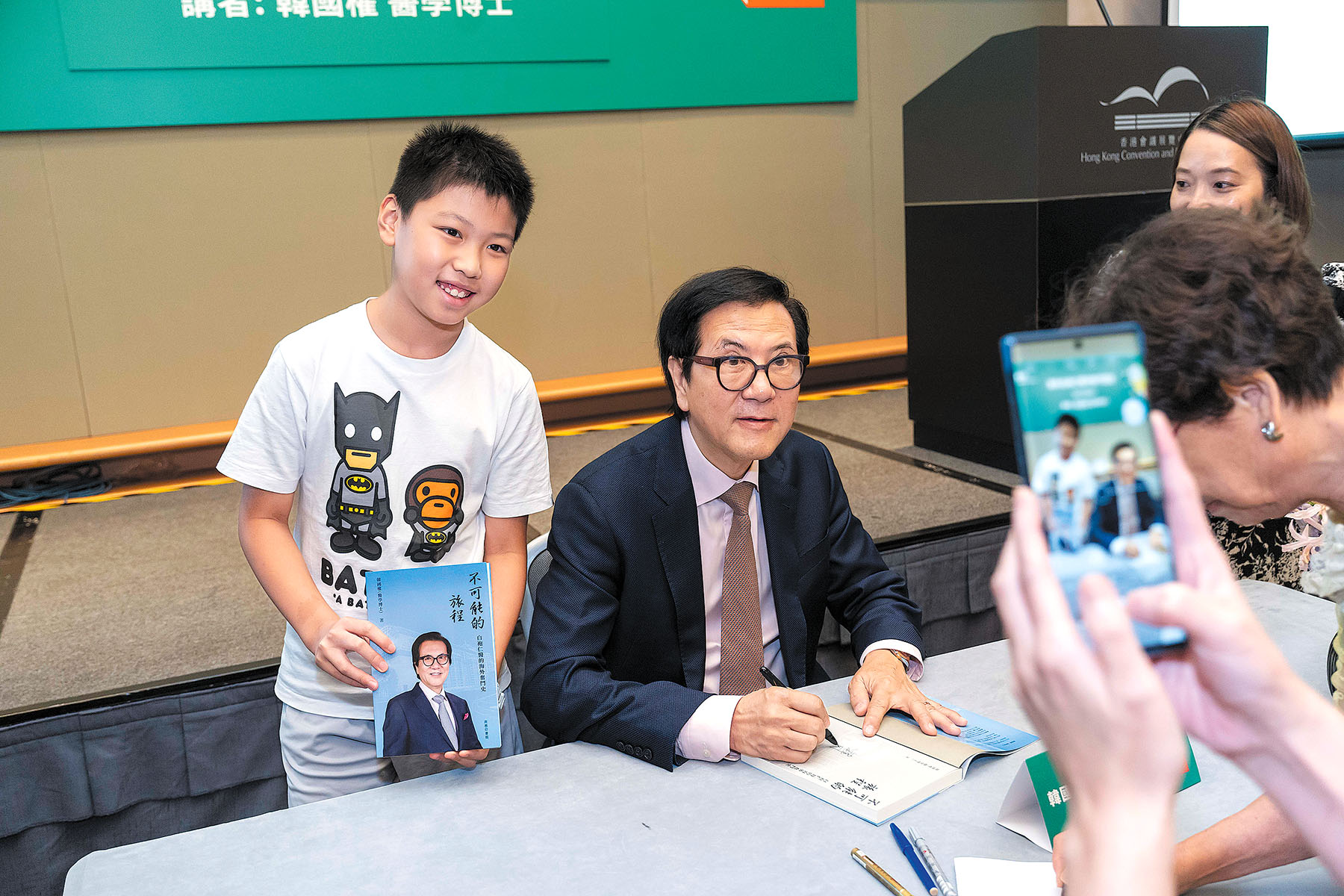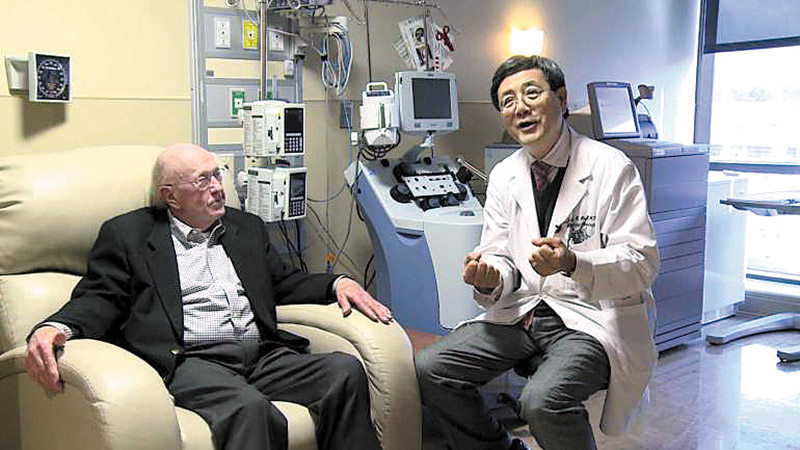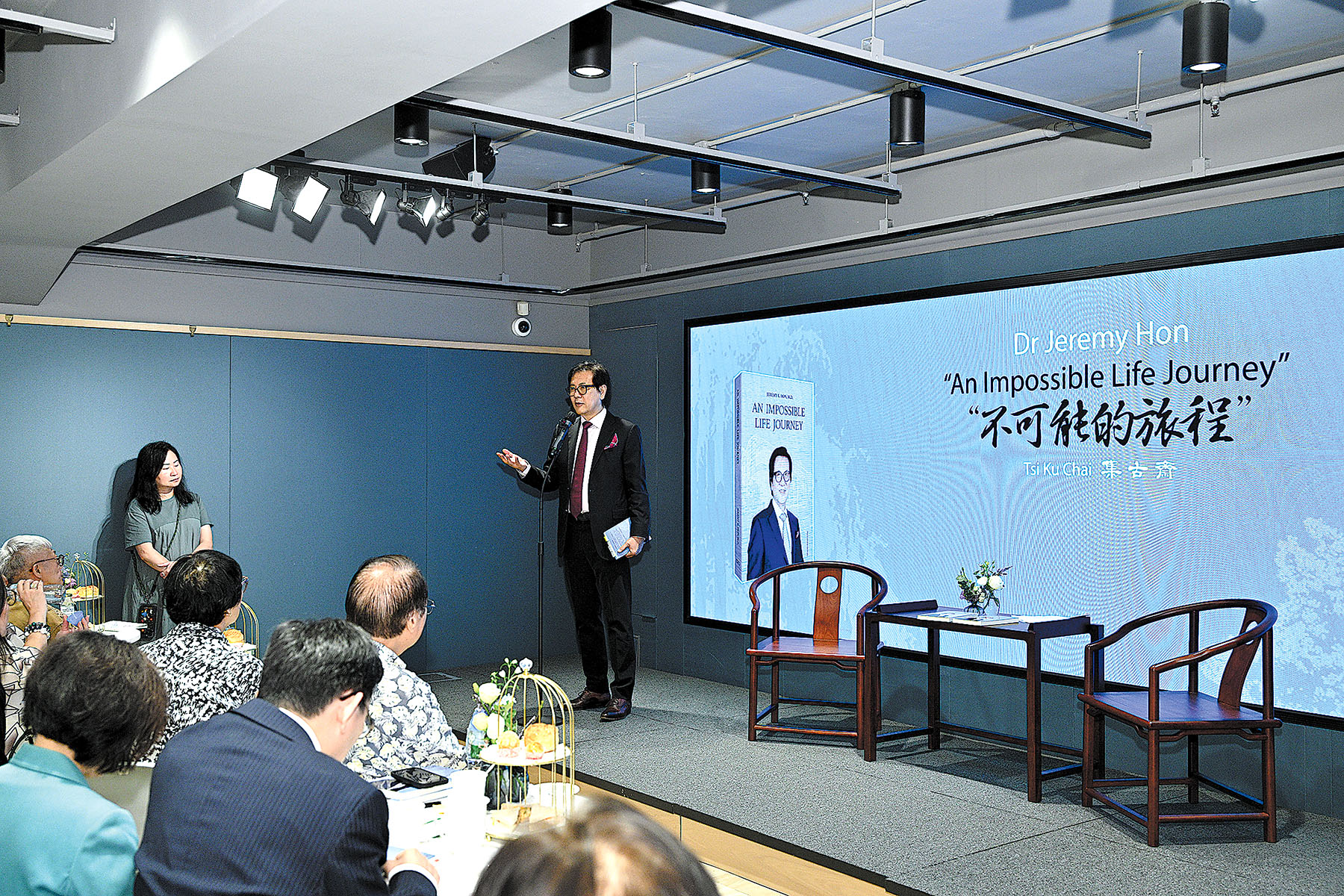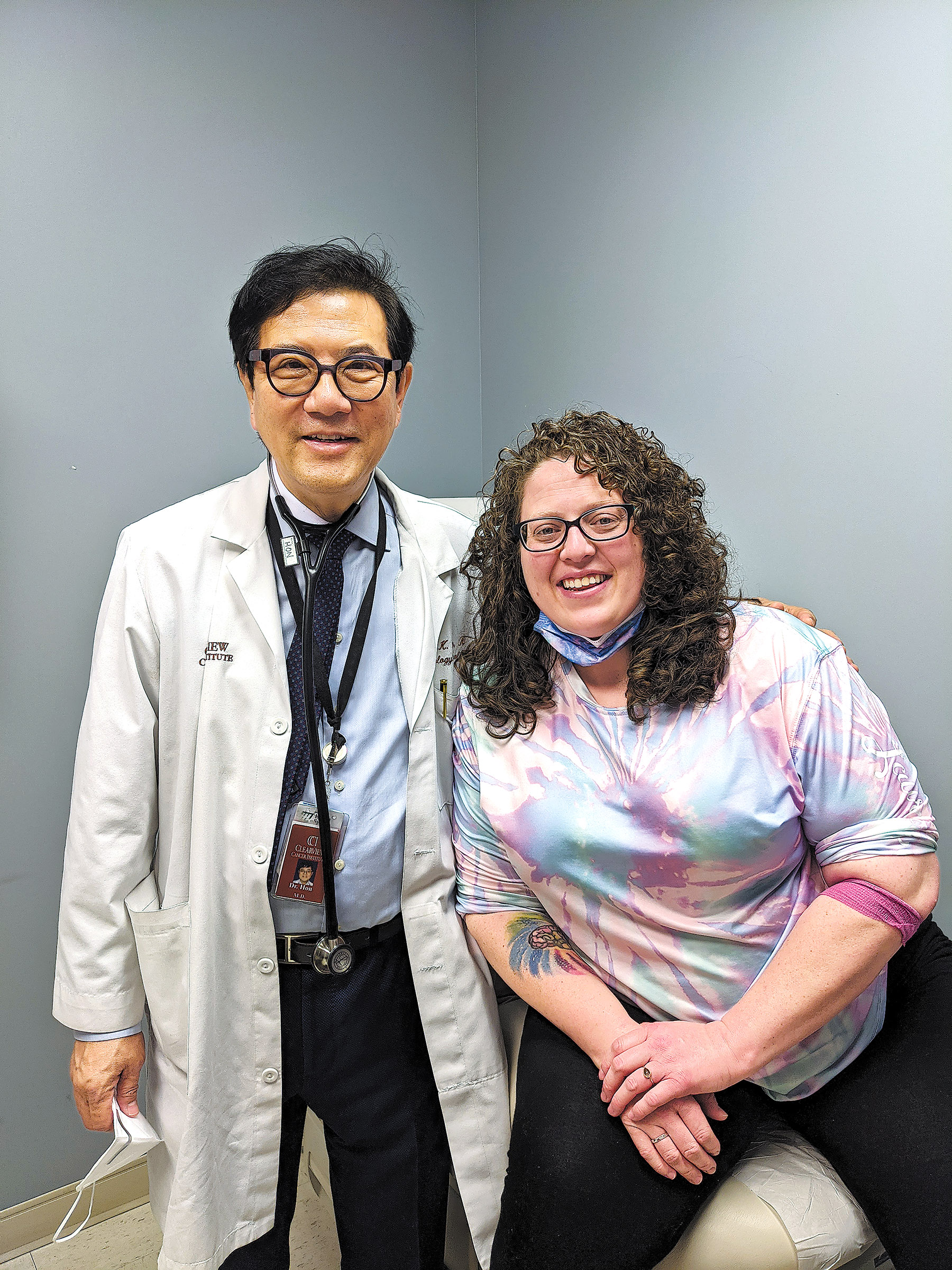Retired oncologist reflects on values that shaped his career, reports Xu Weiwei in Hong Kong.

Hong Kong-born oncologist and hematologist Jeremy K Hon says that Chinese culture has had a lasting influence on him, and that he has a deep appreciation of Chinese literature, despite having spent half of his life in the United States.
He has particular respect for Confucius and Mencius, two ancient Chinese philosophers, and also enjoys reading historical literature, essays and poetry such as Three Hundred Poems of the Tang Dynasty, a compilation that dates to the 7th to the 10th centuries and which contains verses written by a number of different poets. "The language is very powerful," he says.
The cofounder of the Clearview Cancer Institute in Huntsville, Alabama, says that values are the most valuable part of Chinese culture, and they have helped him overcome the challenges of living and studying abroad, developing his career, and setting up his institute.
"I had the saying by Mencius, 'Born in adversity, die in comfort', sitting on the front of my desk in the lab, and in the dormitory," says Hon, 74. "So whenever I returned after a hard day of work or study, or encountered any difficulty, I would read it a couple of times. It gave me strength, as I would think 'I'm suffering now, but maybe someday I will be a great man'."
READ MORE: Chan: Cultural, creative industries set to accelerate
With over four decades in medicine, Hon has saved many lives. He says simply that this was his life's mission, and he is glad he was able to give back to the community, and have a positive impact.
Hon's strong Chinese cultural influence comes from his parents, as he had a primarily English-language education at school.
His father taught him poetry and the teachings of Confucius, which are "ingrained" in his mind and he had many conversations with his mother, who hoped he would become a scholar, about Chinese culture.
"I learned quite a lot of things from this, and I have thought about many aspects of Chinese culture," he says. "I don't follow things blindly, but I think at least 90 percent of the old wisdom still makes a lot of sense today."

He adds that whatever he does in life, he's been taught by his family and teachers to be like a lotus, emerging from the mud, clean and straight.
"I really appreciate this metaphor from an essay Ode To the Lotus written by the philosopher Zhou Dunyi during the Song Dynasty (960-1279) over 1,000 years ago. It was something my father would ask me to recite," he says.
Hon studied at the Tak Ming High School in Hong Kong, which was built in memory of Dr Sun Yat-sen, who was also known as Tak-ming. He says that the school placed great emphasis on patriotism and traditional Chinese values. "I read a lot of history books, including about how the Chinese fought the Japanese during World War II when I was in middle school," he says.
A diligent, hardworking student, Hon was accepted by National Taiwan University as a pharmacy major in 1969. His academic journey took an unexpected turn in 1971 when he was banned by the Taiwan authorities from the island over his patriotic beliefs.
Determined to finish his studies in pharmacy, he moved to the US, working part time to support himself at the School of Medicine at the University of Alabama in Birmingham. He remembers the days when he was financially constrained, and often had to work to be able to pay for his tuition in the US. In order to save on both tuition and time, he managed to complete three years of study only in two.
He earned his Bachelor of Science in pharmacy in 1976 and became a licensed pharmacist. Later obtaining his Doctor of Medicine in Alabama, he went on to complete his postgraduate studies in Texas.
Hon did an internal medicine residency at the University of Texas Health Science Center in Houston. During this period, part of his clinical training was at the renowned MD Anderson Hospital, where he decided to become an oncologist. His fellowship in hematology/oncology was at the University of Texas Health Science Center in San Antonio, then headquarters of the Southwest Oncology Group, which gave him exposure to clinical trials. The center is also known for its laboratory research and has as its goal the training of physician scientists.

Hon's first discovery was as a medical student at the UAB. His paper about a breakthrough in the treatment of metastatic malignant melanoma was published in the Southern Medical Journal and subsequently reported by American Medical News as an important finding. Other research was also published in the Journal of Clinical Investigation, and the Journal of Clinical Oncology.
He returned to Alabama to start a private practice, and as it evolved, he achieved a reputation among patients for being a caring and responsible doctor.
In 1988, he cofounded the Clearview Cancer Institute, and was one of the key figures in its growth and success. He and his colleagues also played pivotal roles in expanding clinical research and trials for different types of cancer. His contributions encompassed emerging therapies for pancreatic cancer, breast cancer, lung cancer and colorectal cancer. Later, he became the director of a stem cell program at Alabama's Huntsville Hospital.
Hon says that one of the greatest aspects of being a doctor is being able to improve a patient's health, and hopefully help them achieve a long, healthy life. Perhaps unsurprisingly, doctors face difficult situations that may even seem to be impossible to solve, and Hon has addressed many such challenges over the course of his career.
He adds that medical oncology is particularly challenging because of the often life-threatening nature of cancer. It is demanding emotionally, but an oncologist has to keep a cool head when analyzing complicated and difficult situations.
Consequently, keeping abreast of research is even more vital. As oncology is a constantly evolving area, it is important to study intensely, read scientific journals, interact with peers, and attend conferences. Last but not least, an oncologist must have compassion and understanding for the patient and their needs.

He says that it is only by combining compassion, love, and care for patients with knowledge that can one become a good oncologist.
"I usually spend close to an hour on each new patient. That includes the review of the pathology, radiographic studies, as well as a thorough interview and physical examination. I believe that you have to treat your patient as if they are part of your family, or even yourself."
As a Chinese person working in the US, Hon is aware that the social and political environment has deteriorated in recent years. He says that US policy and rhetoric are having a negative effect on the Chinese community, and that it has become quite difficult for Chinese researchers to obtain federal grants. Chinese scientists have even been falsely accused by the government or institutions, and well documented cases have been reported by the news and social media. However, he adds that fortunately, this has not been his own experience.
"I would get referrals from patients, their families and most importantly, from other physicians. Ethnic origin is not a major issue, at least in our town," he says, adding that he worked closely with two American doctors when setting up the CCI.
ALSO READ: Picasso’s Asian echoes
After he retired in 2021, he began to write his autobiography, An Impossible Life Journey, which was published in English and Chinese last year. Hon sees his book as an important life achievement, and hopes it will have a positive impact on society in China and the US and be an inspiration to readers. "I think I was able to overcome adversity," he says. "I was at a dead end. I thought my life was done, my career was done, but I was able to find a way to survive. So I learned from my bad experiences, and they became part of what propelled me to achieve my goals."
Hon's younger sister Angel describes him as someone of great wisdom, but says he's so wrapped up in his work that he often overlooks his own needs.
"His knowledge is broad and his emotions deep, and his values and outlook on life are very much shaped by the traditions, philosophies and customs of China."
Contact the writer at vivienxu@chinadailyapac.com


